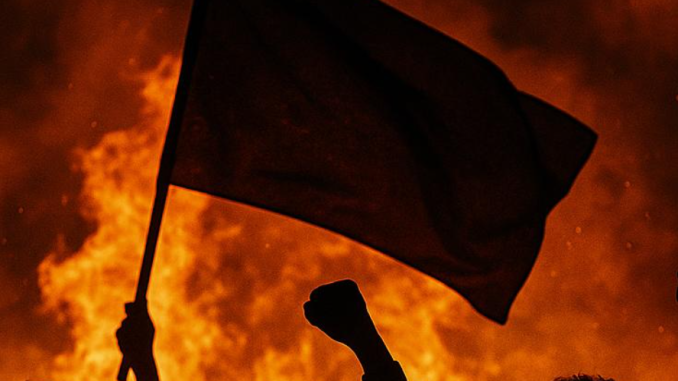
At the Charlie Kirk memorial, President Trump spoke bluntly about left-wing violence, declaring, “The violence comes largely from the left.”
He described Antifa attacks on protesters and events, adding, “Many of these people are paid agitators. When you see they all have the same beautifully printed sign, every sign is identical. It comes out of a top-level print shop. That’s not the kind of sign made in somebody’s basement. Those are paid for by very bad people, and hopefully we are going to be finding out through the DOJ who those people are.”
[snip]
The primary barrier is constitutional. First Amendment protections prevent the government from banning or criminalizing organizations based solely on beliefs, speech, or associations, even extremist ones. In Brandenburg v. Ohio (1969), the Supreme Court ruled that speech can only be restricted when it incites “imminent lawless action.” This precedent has made it extremely difficult for lawmakers to treat domestic extremist groups the same way they treat foreign terrorist organizations.
Beyond constitutional issues, practical concerns also stand in the way. Declaring domestic organizations “terrorist” would effectively criminalize membership without individual trials, raising serious due process questions. Equal protection challenges could also arise, since such powers might be applied selectively against disfavored groups. Critics warn that these powers could be weaponized by future administrations to target political opponents. If he could have, it really seemed like Biden wanted to designate MAGA.
[snip]
Without a domestic “terrorist organization” designation, the U.S. prosecutes individual crimes, conspiracy, weapons charges, and acts of violence, rather than banning organizations outright. The FBI investigates domestic terrorism as criminal activity, not organizational membership.
Additionally, even without the terrorist designation, the Department of Justice has ample tools to trace funding and prosecute violent extremist networks. RICO allows prosecutors to treat a group as a criminal enterprise, targeting leaders and financiers while seizing assets tied to racketeering, and it has been used against hate groups and militias. Conspiracy statutes (18 U.S.C. § 371) enable charges against those who agree to commit federal crimes, including financial supporters, often before violence occurs.
Material-support laws (18 U.S.C. §§ 2339A/2339B) criminalize providing money, training, or weapons tied to specific offenses, while weapons and explosives statutes cover illegal gun purchases and National Firearms Act violations, including “straw” financing.
[snip]
However, the way these laws are written, they should theoretically protect any group attacked specifically because of race or religion. Hate-crime laws theoretically protect all groups based on protected characteristics. Trump has already issued an executive order protecting Christians from discrimination, and he is bound to encourage the DOJ to use hate-crime laws to protect whites and Christians.
Financial crimes such as money laundering (18 U.S.C. § 1956), tax evasion, and structuring are also powerful tools to uncover and disrupt funding streams. This multi-pronged approach often proves more effective than a single “terror” label because it attacks the entire criminal ecosystem, organizers, facilitators, and funders alike.
If investigators can prove foreign funding or direction behind a domestic group, a different, and often stronger, set of legal tools comes into play. Only foreign organizations can be designated as Foreign Terrorist Organizations (FTOs), but if a U.S.-based network is effectively a branch or under the control of a foreign group, prosecutors can pursue material-support charges (18 U.S.C. § 2339B) tied to that foreign organization, and the State Department can consider designation for the foreign principal.
[snip]
A proven foreign nexus unlocks national-security tools: FISA surveillance (with the required probable cause), Treasury/OFAC sanctions that freeze U.S. assets and cut off transactions, and immigration consequences (visa denials, removals). The key evidence is financial transfers from abroad, coordination or direction by foreign entities, and indications of foreign-government involvement, including via cutouts.
Strategically, this route often proves more effective because foreign principals lack First Amendment protections, surveillance authorities are broader, asset-forfeiture options are more aggressive, and public support is typically stronger for countering foreign influence.
* Original Article:
Tracing the Money: Trump Vows to Discover Who Is Financing Antifa, Trantifa, and Left-Wing Violence